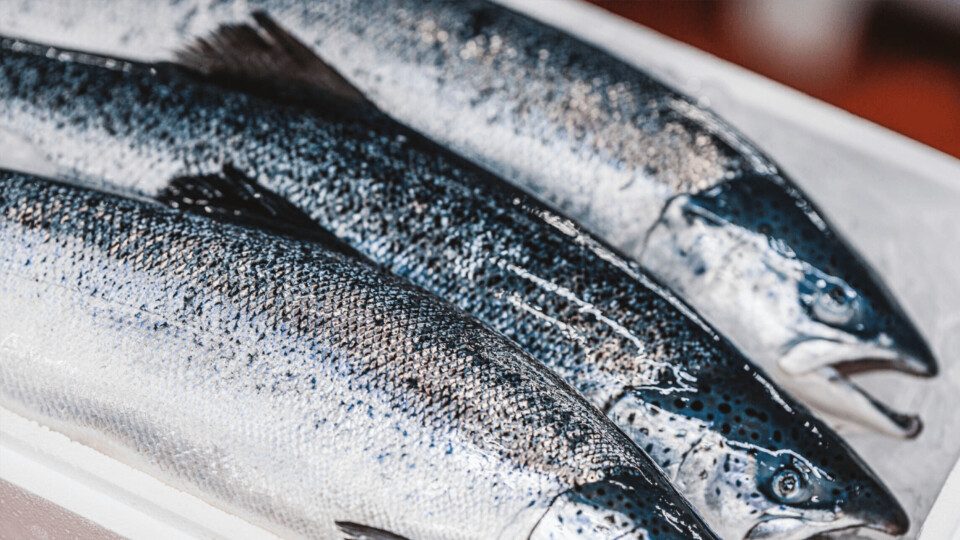
Salmon slaughter plants to be inspected after charity highlights oversight gap
The Scottish Government has asked the Animal and Plant Health Agency (APHA) to inspect farmed salmon slaughter facilities in Scotland.
The move comes after campaigning animal rights charity The Humane League UK (THL) revealed that neither of the agencies responsible for fish welfare inspections - APHA and Marine Scotland - were doing so.
However, THL described the Scottish Government’s response as “deeply inadequate”.
No oversight
THL discovered the lack of inspections when it received replies to from Freedom of Information (FOI) requests made during the summer.
Marine Scotland informed THL that it does not conduct welfare checks, but that APHA may “possibly” conduct them. However, the charity was informed by APHA that it “does not have a routine programme of official inspections at fish processing sites”. A follow-up FOI in November established that welfare checks at slaughter are still not occurring.
The UK Animal Welfare Committee, an expert group that advises the UK’s Department of Environment, Food and Rural Affairs, and the Scottish and Welsh Governments, is currently conducting a review of fish slaughter.
Near future
A Scottish Government spokesperson told Fish Farming Expert: “The Animal Health and Welfare (Scotland) Act 2006 protects kept animals including farmed fish from unnecessary suffering. The Animal and Plant Health Agency (APHA) are responsible for investigating welfare complaints concerning farmed fish and other farmed animals.
“The Scottish Government has asked APHA to inspect farmed salmon slaughter facilities in Scotland and we expect this to start in the near future. We will then assess the need for future planned inspections.
“We will also carefully consider any recommendations made by the UK Animal Welfare Committee working group that is currently reviewing the welfare of fish at slaughter.
“A number of industry Codes of Practice for the farmed sector already exist, including that produced by Salmon Scotland. The current version notes that Veterinary Health Plans must be prepared by each company in collaboration with its veterinary surgeon and that training must include training on slaughter of fish.”
Too vague
In response, THL’s campaigns coordinator, Maddy Dawe, said: “It is encouraging to hear that the Scottish government has requested that the APHA begin inspecting salmon slaughter facilities, and that they are sensitive to the recommendations of the Animal Welfare Committee.
“Nevertheless, their response is deeply inadequate. They say the APHA is responsible for investigating welfare complaints for farmed fish, but do not address the fact they do not inspect welfare at slaughter. They say inspections will start in the near future: is this a week or a year? We know nothing about how regular inspections might be, or if they will be unannounced. They say they will carefully consider the opinion of the AWC, but the AWC’s opinion has supported updating the law with detailed slaughter provisions for farmed fish for the last 25 years.
“If the Scottish government is serious about improving fish welfare it must produce a concrete commitment to reform, underpinned by detailed descriptions of their proposed changes and a timetable for their implementation. Anything short of this is too vague to be valuable, leaving an unjustified welfare gap for fish at slaughter.”
Pre-slaughter stunning
UK law has detailed legal requirements for how to slaughter pigs, chickens, and cows, but doesn’t offer the same protections for fish, although pre-slaughter stunning of fish is already practised by salmon farmers and is demanded by welfare certification groups. However, THL wants it to be mandated by law for all farmed fish species. It cites an incident at the Scottish Salmon Company’s Arnish harvest station in the autumn of 2019 as a reason why a law, rather than self-regulation, is needed.
An undercover investigation by the UK branch of vegan animal welfare group Animal Equality captured video footage of fish being inadequately stunned with wooden priests (coshes) before slaughter. Although Animal Equality said it was “concerned about the very serious animal suffering that we witnessed on the Arnish slaughter site”, it kept the video under wraps for more than a year before releasing it in February 2021.
‘Whims of industry’
THL’s head of campaigns, Cordelia Britton, said the lack of legally defined requirements for fish slaughter to match those for land animals meant “entrusting the wellbeing of millions of animals to the whims of private industry”.
Industry organisation Salmon Scotland has previously pointed out that salmon farmers take their fish slaughter welfare responsibilities extremely seriously, and has highlighted the example of Scottish Sea Farms, which uses an award-winning in-water stunner at its primary processing plant at South Shian. Stunning fish while they are still in the water reduces stress before slaughter. SSF also checks the adrenaline levels of four different sample batches of fish at different times during the unloading from a wellboat, to ensure stress levels remain low























































